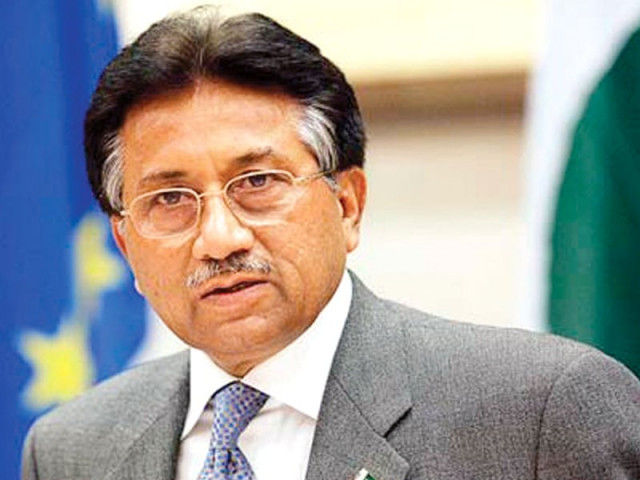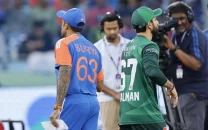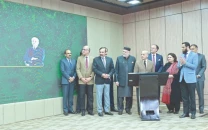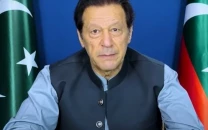Judicial commission to record Musharraf’s statement
Court observes medical illness cannot be a reason to delay case

PHOTO: FILE
A special court on Monday decided to form a judicial commission to record the statement of former military ruler Gen (retd) Pervez Musharraf under Section 342 CrPC in the high treason case.
The development came after the military dictator, who had been living in the UAE since March 2016 -- declined to record his statement through a video link.
A three-judge special court led by Lahore High Court Chief Justice Yawar Ali and comprising Balochistan High Court Chief Justice Tahira Safdar and Sindh High Court judge Justice Nazar Akbar heard the case.
In its order, the court observed that the trial “cannot be impeded merely on the ground of medical illness as is evident from the language of Sections 4, 6 and 9 of the Criminal Law Amendment (special court) Act 1976”.
The order says, “It is crystal clear that Musharraf wants to get him examined under Section 342 CrPC, but shows his inability to appear before this court on account of his ill health.”
“There is nothing on record to establish that the accused (Musharraf) is not ‘mentally alert’ to the circumstances of the case as is also apparent from the statement given by his counsel in writing as well as at the bar.”
The order further said that the special procedure can be adopted by this court under the given circumstances to examine the accused under Section 342 CrPC; therefore, this court on the next date of hearing will prepare questions as required for the examination of the accused as envisaged under Section 6(1)(d) of the Criminal Law Amendment (Special Court) Act 1976.
For the purpose of recording his statement, a commission shall be appointed by this court. The hearing of case is adjourned till November 14.
Interestingly, Justice Yawar Ali, who was presiding the special bench, is going to retire on October 23. He remained part of the special bench since its formation in 2013.
The justice also wrote a dissenting note in the judgment, wherein the federal government was asked to include Justice (retd) Abdul Hameed Dogar, the then-law minister Zahid Hamid and former prime minister Shaukat Aziz part of the inquiry.
However, his view was endorsed by the apex court in its order to try only Musharraf in view of the federal government’s complaint.
Earlier, Barrister Salman Safdar, the counsel for Musharraf, stated that the accused, in has filed statement, expressed his willingness to return to the country for cross examination once his medical condition improves.
He further submitted that he contacted his client by telephone and found that he was unable to speak as he was undergoing a medical procedure.
On the other hand, Naseeruddin Khan Nayyar, counsel for the complainant, submitted that the accused is deliberately not appearing before the court and added that in any case the trial cannot be delayed due to the illness of the accused, if any, under Section 9 of the Criminal Law Amendment (Special Court) Act 1976.
The previous Pakistan Muslim League-Nawaz (PML-N) government had submitted an application in the court in April, requesting it to conclude the treason trial without waiting for the personal appearance of Musharraf and pronounce the judgment on the basis of available record.
The application said the high treason proceedings were covered by the provision of a special law, which lays down the entire manner of regulating the proceedings of those who are present and of those who choose to stay away from the court.
The top court had ordered Musharraf to come to Pakistan and record his statement in the treason case, offering that he would not be arrested.
Musharraf's counsel had submitted his medical report to justify his non-appearance before the court.



















COMMENTS
Comments are moderated and generally will be posted if they are on-topic and not abusive.
For more information, please see our Comments FAQ